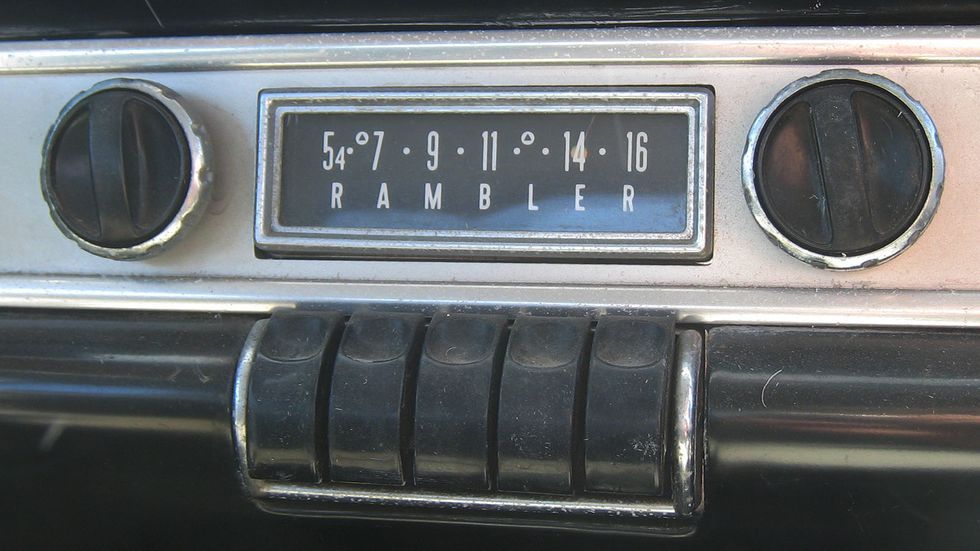Zero Worries
January 6, 2022
Recently I sat alone at a bar and grill in the hills of Northern California, pondering the collapse and destruction of the United States. It had nothing to do with culture, race, gender, politics, or the fact that we seem to have become a country of over 300 million special interest groups. Every person more important than every other person, where each one thinks somehow they’ve been overlooked, overworked, underappreciated, or marginalized. Instead, it was all about the smartphone on the table in front of me.

Photo Credit: Canva Graphics
I was on a research trip to the Hoover Institute at Stanford University, located in Silicon Valley. As the plane touched ground earlier in the week, I finished the Financial Times/McKinsey book of the year; This Is How They Tell Me The World Ends: The Cyber-Weapons Arms Race, by Nicole Perlroth. A book the New Yorker said was “Part John Le Carre and more parts Michael Crichton…spellbinding…” It was edge of the cramped, poorly padded airline seat reading. Not in a thrilling sense, but more of wide-eyed fear of personal destruction. Le Carre delivers fictional spies, and Crichton brings dinosaurs back to life. Perlroth delivers real techno-spies and the possibility the Stone Age could come back to life. If I wasn’t belted in, I might have run down the aisle screaming and become another “Airline Passenger Goes Berserk” headline.
The book schooled me on zero-day vulnerability. It’s an undetected computer software or hardware weakness. Initially, hackers searched for these flaws in a nerd versus nerd contest for bragging rights. Then they became nerds for profit, selling the information to software and hardware manufacturers and computer security companies. Today there is an open market between hackers and foreign governments, defense agencies, intelligence services, and criminal enterprises. The face of international and domestic terrorism is now someone in sweatpants and a stained t-shirt, sitting in front of a computer guzzling energy drinks.
I coordinated my trip via email with archivists and reserved time in the library through an online reservation system. My airline, rental car, and hotel reservations were all made online, and on arrival, I checked into my hotel via an app. The same app also acted as an electronic key and gave me access to the parking garage, the hotel proper, and my room. Although it wasn't yet able to operate the room’s temperature controls, it functioned as a television remote. I allowed the rental car’s entertainment and communication system to synchronize with my smartphone so I could listen to podcasts, make calls, and navigate hands-free. Every morning before I arrived on campus, I completed an online health attestation form. When I got there, I paid for my parking through an app that pinpointed the location of my car.
The restaurant where I sat and thought about this interconnected web of capabilities was Rossotti’s Alpine Inn, also known as Zott’s. I didn’t learn about it through a local recommendation or even a Google search for restaurants near me. I learned about it from Perlroth’s book. Internet communication was born there in 1976. Some scientists from SRI International in Menlo Park brought some Pentagon officials to the bar to demonstrate new networking capabilities. They placed a computer terminal on an outside picnic table then ran cables to a bread truck in the parking lot. They’d converted the truck to a mobile radio unit. Then, they sent an electronic message from their unit to the ARPANET. It was the first time two distinct computer networks connected and became day one of the internet.
If it weren't cold, I would have asked for a seat at a patio picnic table. What better way to connect with history? Instead, I asked for a seat in the restaurant. A young man led me to my booth and explained the menu, beer list, and payment processing were all online, then pointed me to the QR codes necessary to begin my journey. The process was quick and flawless. I received a text immediately after ordering with a link to my tab. My beer arrived almost as fast as the text, followed shortly by the meal.
A month earlier, I wrote about the continued threat of nuclear war and the government's responsibility to educate and protect us. Now, between bites of a delicious slow-smoked pulled pork sandwich, I contemplated an attack where the country's entire population is left alive but without electricity, heat, or transportation, and the ability to purchase food and supplies. Either at the hands of a foreign government, terrorist organization, crime syndicate, or a teenager looking for something more challenging than Call of Duty or World of Warcraft.
After finishing my sandwich and the tasty slaw, I pulled myself out of my “end of days” despair. Although I take precautions to keep my data and devices secure, Perlroth made it clear that connected or not, cyber warriors can access them. Fret or not, my and everyone else's cyber security is in the hands of the government and the companies responsible for hardware, software, and network technology. The trip itself was an example of how connected we are and the near impossibility of surviving entirely off the grid. Unless we build a cabin in the woods, grow and kill our food, and surrender centuries of progress, the risk remains. At that very moment, a countrywide attack could isolate me in my booth at the Alpine Inn. I calmed myself by thinking we shouldn’t let things we can’t control interfere with those things we can.
So, I reached for my phone, swiped through some apps, thumbed the screen, then placed it back on the table. Even if a cyberwar flared up in minutes, I had another Scrimshaw-Pilsner on the way.
Like what you read?
Subscribe to my mailing list and get notifications to your inbox when my next blog post goes live.
Contact Us
More By Joe


